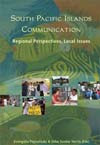
Seasonal workers at the Satara kiwifruit packhouse in Te Puke.
On right: Group leader Sepuloni Saipaia and Satara pastoral care
manager Tim Crossman.
By Lucy Mullinger: Pacific Media Centre
An export harvesting and packaging industry employing seasonal Pacific Islanders has emerged as a critical money-spinner for small island economies, with the scheme earning more than $10 million a year for Tonga alone.
A government analyst, Anne Masoe, who has been involved with the Recognised Seasonal Employer (RSE) scheme since 2006, says it is important for Pacific remittances.
Masoe, a Department of Labour analyst, says the work policy began on April 1, 2007, and was launched under the labour market strategy.
The policy helps Pacific Islanders find work planting, maintaining, harvesting and packing crops in the horticulture and viticulture industries.
RSE enables New Zealand employers to recruit labourers aged 18 to 52 from Pacific Islands Forum member nations, including the Federated States of Micronesia, Kiribati, Marshall Islands, Nauru, Palau, Papua New Guinea, Samoa, Solomon Islands, Tonga, Tuvalu and Vanuatu.
According to the Mr Apple website, the company which is the largest RSE’s schemes largest employer says it is the “largest grower, packer and exporter of apples”.
It focuses on producing “quality export apples for valuable customers in the United Kingdom, Europe, Asia, USA and the Middle East”.
At a meeting held in mid-May, Mr Apple’s labour manager, Alistair Jamieson, briefed visiting Prime Minister Dr Feleti Sevele in Hastings on the Tongan contingent’s contribution to the company’s business.
Jamieson says the Dr Sevele was very happy with the policy and caught up with his workers.
Jamieson also met up with the Samoan Prime Minister, Tuilaepa Lupesoliai Sailele Malielegaoi , recently who was equally pleased with the initiative.
“Both the Tongan and Samoan governments are very keen to have the programme's remittance back to the islands” says Jamieson.
Great benefit
Mr Apple's labour coordinator, Karen Morrish, said the meeting went exceptionally well and all members of the Mr Apple team (senior management, orchard staff and RSE workers) found the meeting to be of great benefit to both the RSE and the company.
Mr Apple employs the Tongan RSE workers through TongaWorks which supports workers and their employers.

According to TongaWorks brand manager Sefita Hao'uli, the “RSE is a necessity for Mr Apple's business to be successful because of higher productivity and a more reliable work force”.
Hao'uli says: “RSE is extremely important to Tonga and Pacific countries who have been asking for access to the NZ Labour market”.
It is worth over 10 million dollars to Tonga each year and involves quite a large number of Tonga's small population.
Before employing RSE staff, “the harvest was always difficult and there were no guarantees that they would be able to get the fruit picked on time,” says Hao'uli.
According to Hao'uli, for the year ending April 09 New Zealand employed just over 5000 RSE workers. More than 2400 were from Vanuatu, Tonga 1200, Samoa 1100 and the remainder from Solomon Islands, Kiribati and Tuvalu.
Morrish says “we started with 26 workers and have grown with the scheme to having employed 833 this season.” With 1700 people on the seasonal work force this year that means half of the employees were from the RSE.
Peak needs
Morrish says “our RSE workers provide the seasonal peak requirements at our times of thinning and picking”.
According to Masoe, residents from Samoa, Tonga and Vanuatu can work up to six months, whereas Kiribati and Tuvalu citizens can work up to nine months in New Zealand.
Jamieson says he likes to employ these workers because the company values the Pacific Islanders’ work ethic.
“They have great integrity” and “we obviously try to give them as much work as possible”. “The fact that they are here, keen to work and reliable is an amazing benefit to us”.
Mr Apple has already been recruiting RSE staff for two years. RSE status is initially granted for two years with additional years if the employer keeps to the regulations imposed by the Department of Labour.
Mr Apple is now on to its third year due to the fact that it has to keep up with the RSE rules and regulations which include ensuring they pay for half of the workers travel costs to and from New Zealand, a guarantee of pay for at least 240 hours of work and an average of 30 hours a week.
RSE accredited companies are also expected to provide suitable accommodation, translation, transportation, and the chance for RSE staff to maintain their religious and recreational activities. When it comes to pay and employment law, the same rules for New Zealand workers apply.
According to Hao'uli, most RSE labourers are on the minimum pay (an hour) when they first begin working, however the minimum pay rates don't always apply on contract.
“It's not about how long one works, it’s how hard,” he says.
Costs rise
One problem, however, is that local employers in Tonga have found the cost of labour has gone up because "quality" labourers now have other better paying options”, says Hao’uli.
There is also the problem of workers being re-located outside their own countries and away from their families.
“The social impact both at home and abroad are often overlooked,” says Hao'uli.
However, the Department of Labour and RSE organisers are aware of the problems, DOL’s Masoe says there are always improvements to any policy - “we are two years down the road and still fine tuning the scheme”.
The Department of Labour has been provided with some funding through the Government Agency Fund “to provide technical assistance for Pacific states to improve RSE for the next two years”, says Masoe.
“We're at the infancy and both host and source country governments are keen to address these as they arise,” says Hao'uli.
Pre-departure training, orientation and worker support while on the job go to some extent to monitor and address these issues as it is in everyone's interest to work together.
Countries such as Tonga have a whole division devoted to RSE and a full time team of trainers to do all of the necessary training before departure. It can take up to three days for some of the new recruits.
Former RSE workers and group leaders are also brought in to help with training to ensure new workers are ready before they arrive in the country.
Lucy Mullinger is a Graduate Diploma in Journalism student on the Asia-Pacific Journalism course at AUT University. Pictured above: Sefita Hao'uli (Photo: Del Abcede).
Mr Apple
Recognised Seasonal Employer scheme






















No comments:
Post a Comment